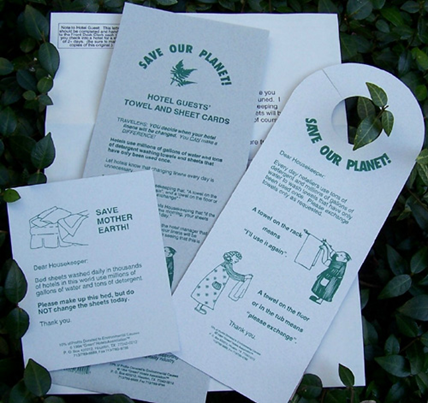What Dirty Rooms Tell Us About Future Hotel Margins
Hotel rooms are dirtier than ever, and many hotel operators are milking it for everything it’s worth.
We were struck by a recent Fortune article (Dirty hotel rooms: Business traveler checks in and out for one-night stays in same room) detailing the challenges of accessing basic services that we apparently took for granted pre-COVID. Individual consumer complaints are falling on deaf ears. The article points out that “…figuring out how to convey the request for beds to be made or towels replaced daily can be a maddening exercise in code breaking.”
During COVID, we were willing to accept a degradation of service out of an abundance of caution related to reducing human interaction, a dearth of employees willing to do this work without hazard pay, and a general feeling that we were all “pitching in” during a difficult time. Then, the economy bounced back and “revenge travel” kicked in. Average hotel room rates increased dramatically under the protective halo of an inflationary environment and occupancy largely returned to pre-pandemic levels.
According to May update on hotel industry from PWC (US Hospitality Directions: hotel industry report), “in Q1 2023, US hotels exceeded Q1 2019 (pre pandemic) RevPAR levels by 13.0 percent, based on data from STR. Room rates continue to be the primary driver in this performance recovery. While occupancy in Q1 2023 was still down 2.1 points from the same period in 2019, ADR increased 17.0 percent.”
This trend originally started with a subtle pitch to defer services in order to protect the environment. I’m sure we have all seen the cards in hotel rooms asking us to respect the environment by reusing towels, making our own beds, and using less soap and shampoo.
Every little bit helps, right?
But maybe the good intentions have gone too far, resulting in “virtue signaling” that now extends to things like emptying the wastebasket. Further, as we all know from our own college experiences, deferring daily cleaning eventually requires a massive effort and results in a level of cleanliness that falls short of a more frequent, less strenuous process. The article points out that “hotel workers are also pushing back against the idea that reduced cleaning is an environmental boost. When two or three guests stay in a room and it’s cleaned only on checkout, that means more time, more cleaning products, and a harder job….sometimes, we don’t even finish the rooms because they’re so filthy.”
Evidence suggests that hotels are still struggling to find and retain employees, although some argue they are not looking very hard. According to a McKinsey & Company article (Hotel staffing shortages), a recent American Hotel & Lodging Association survey suggests that 87% of hotels are understaffed and 36% cited severe staff shortages. “For 43% of hotels, housekeeping roles were singled out as being the most seriously understaffed.” While there may be opportunities to optimize staffing needs through innovative approaches and technology implementation (as outlined in McKinsey article), it’s hard to believe this problem can be solved without higher wages and better benefits.
Indeed, a recent Guardian article (‘More work in fewer hours’: LA’s hotel workers detail backbreaking conditions) that discusses a July strike in Los Angeles by hotel workers, points out some of complaints leveled by hotel service employees, which seem to ring true to our ears. “Hotels have used the Covid-19 pandemic as an excuse to cut staffing levels and increase workloads, workers say. But the union has countered that the industry, which received billions in Covid relief funds, should commit to a significant pay bump for workers…. A big point of contention the union-backed contract addresses is the pandemic-era elimination of daily room cleanings. Rather than wiping down and touching up rooms on a daily basis, workers are given fewer hours to deep-clean days of buildup after long stays.”
Now as revenge travel is abating and recession looms on the horizon, consumers are seeking greater value for every dollar spent. Asking for continued “sacrifice” to protect hotel operator’s margins seems like a “bridge too far”. Most observers believe hotels will go back to daily cleaning, but only when they have to. In the meantime, they will continue to milk it for all its worth. It’s another case of COVID-induced necessity that has outlived its utility, propping up short-term returns with longer-term consequences to shareholders. Owners of these stocks be forewarned.
Are you a Financial Professional? Then check out our new portal and get all kinds of tools and resources on multi-strategy investing, and growth.
Validus Growth Investors, LLC seeks to invest in companies at every stage of their growth. From startups to publicly traded companies, our research identifies inflection points that have the potential to produce meaningful growth and income for the clients we serve.
IMPORTANT DISCLOSURE:
Investment Advisory Services are offered through Validus Growth Investors, LLC (“Validus”), an SEC Registered Investment Adviser. No offer is made to buy or sell any security or investment product. This is not a solicitation to invest in any security or any investment product of Validus. Validus does not provide tax or legal advice. Consult with your tax advisor or attorney regarding specific situations. Intended for educational purposes only and not intended as individualized advice or a guarantee that you will achieve a desired result. Opinions expressed are subject to change without notice. Investing involves risk, including the potential loss of principal. No investment can guarantee a profit or protect against loss in periods of declining value. All information is believed to be from reliable sources; however, we make no representation as to its completeness or accuracy. Opinions and projections are as of the date of their first inclusion herein and are subject to change without notice to the reader. As with any analysis of economic and market data, it is important to remember that past performance is no guarantee of future results.


